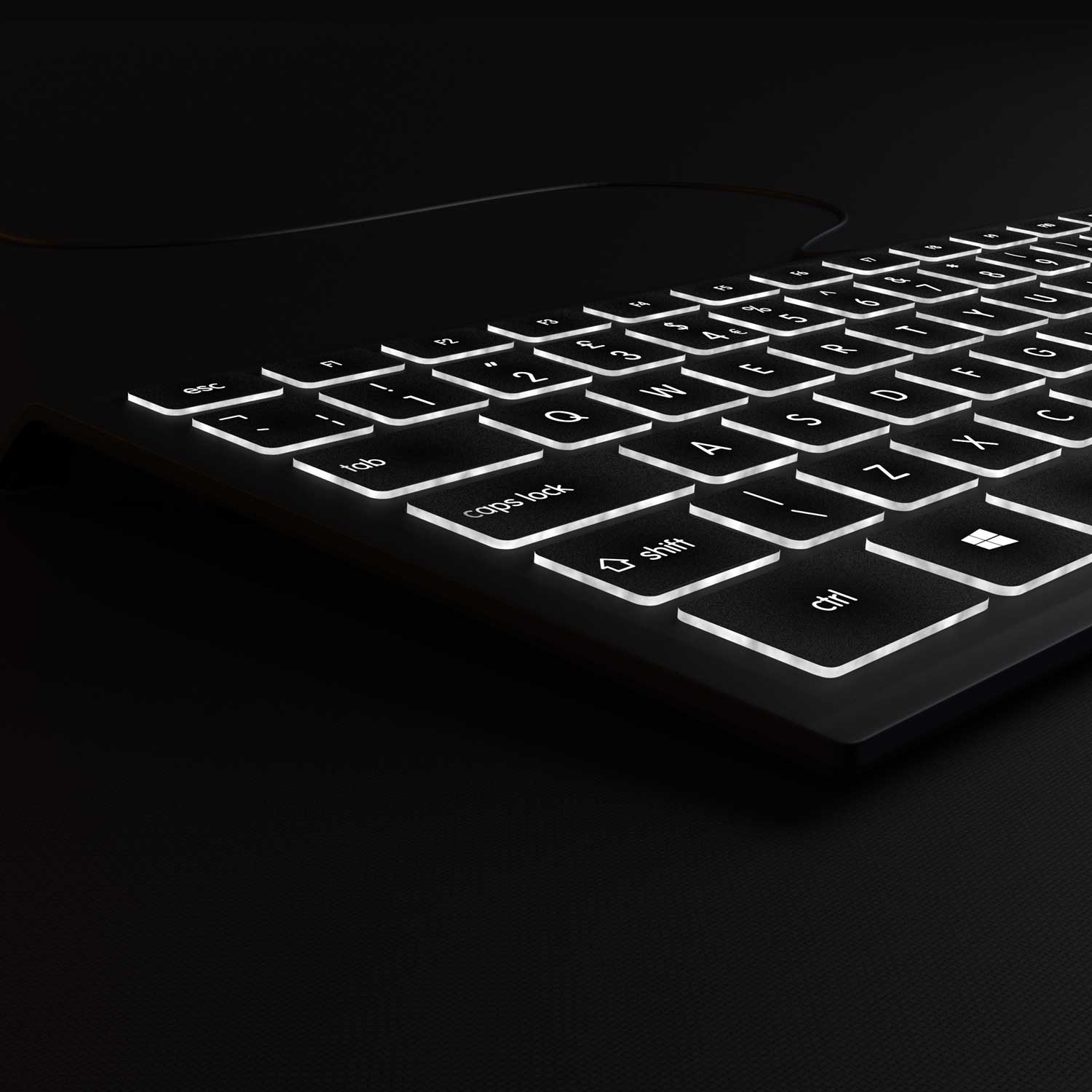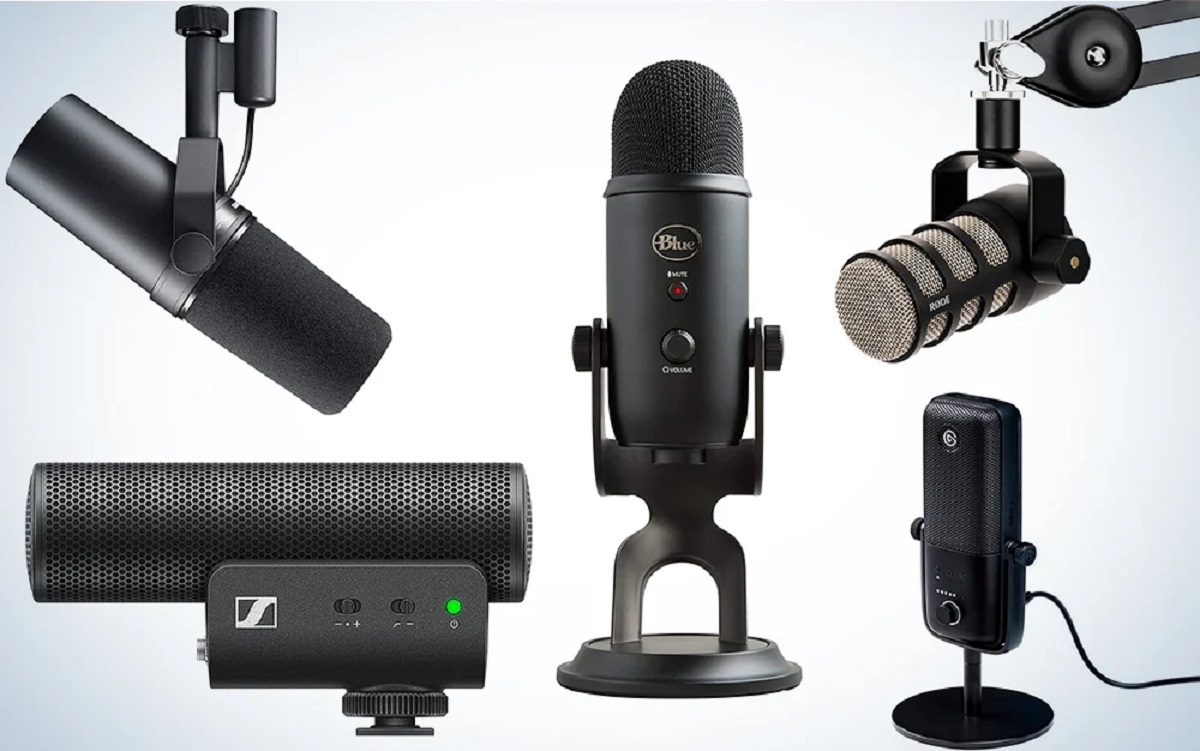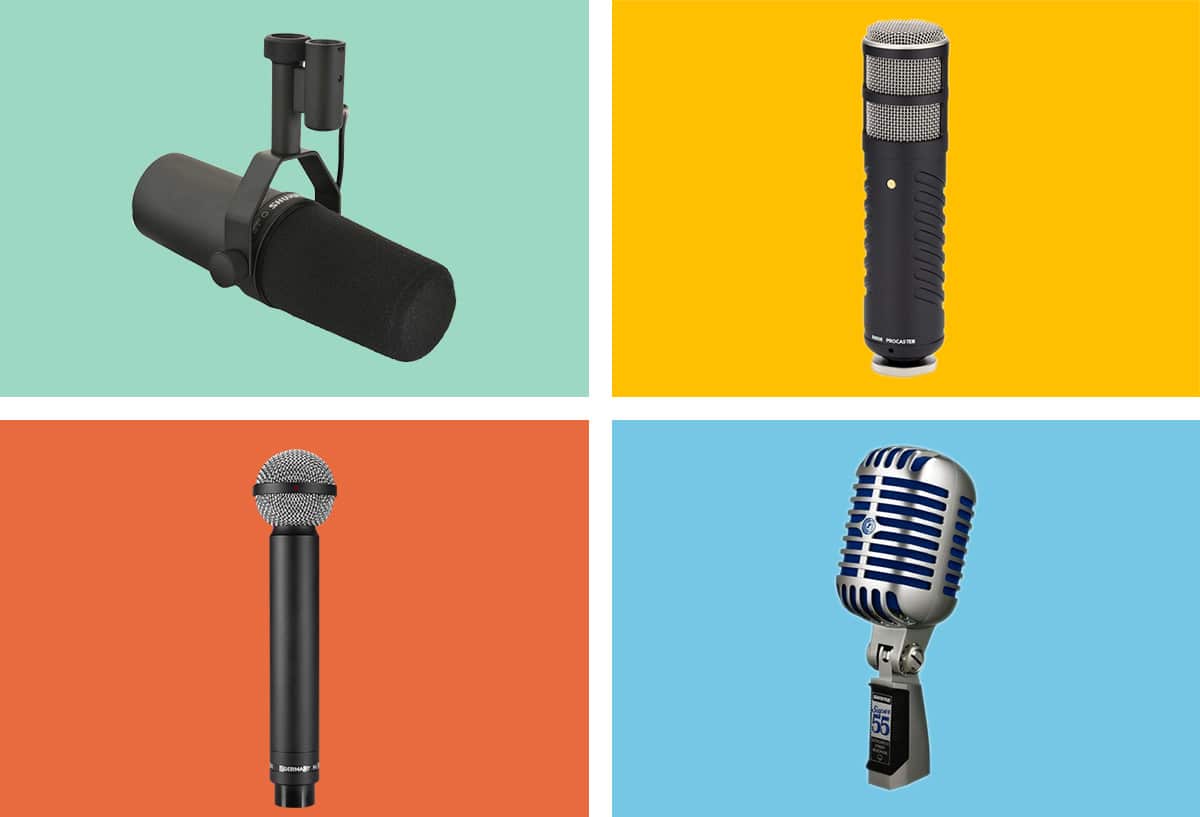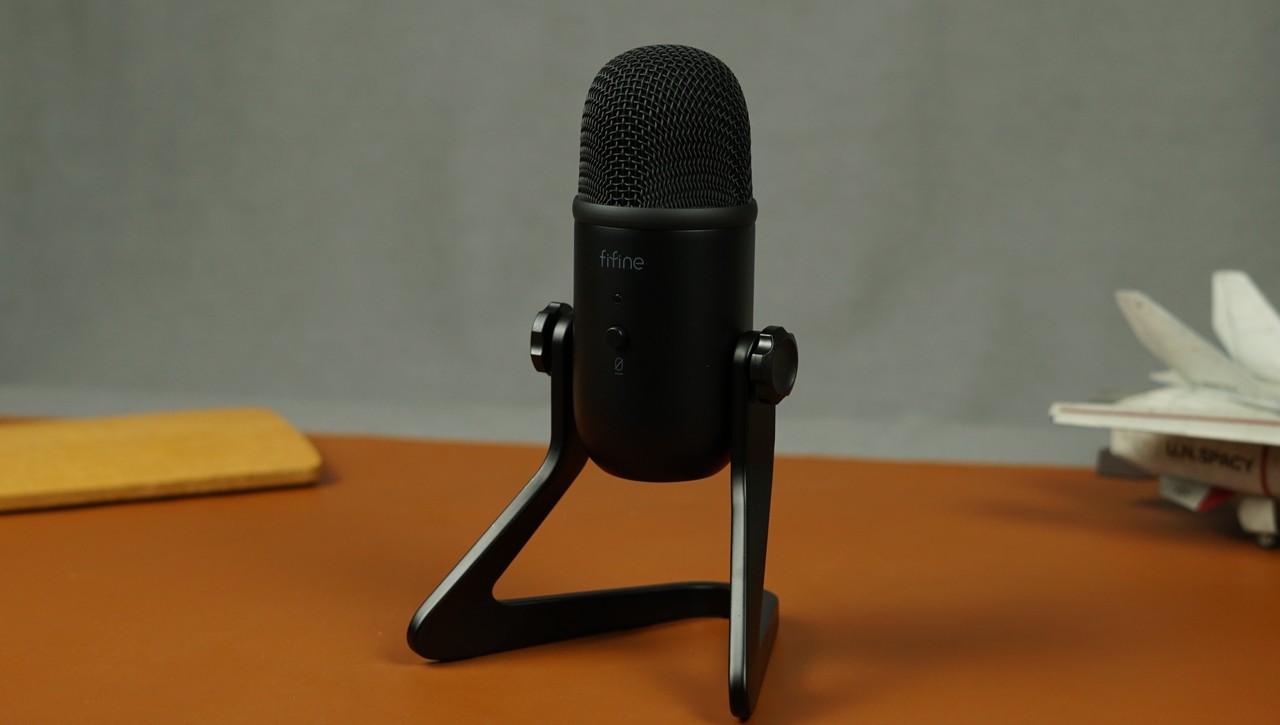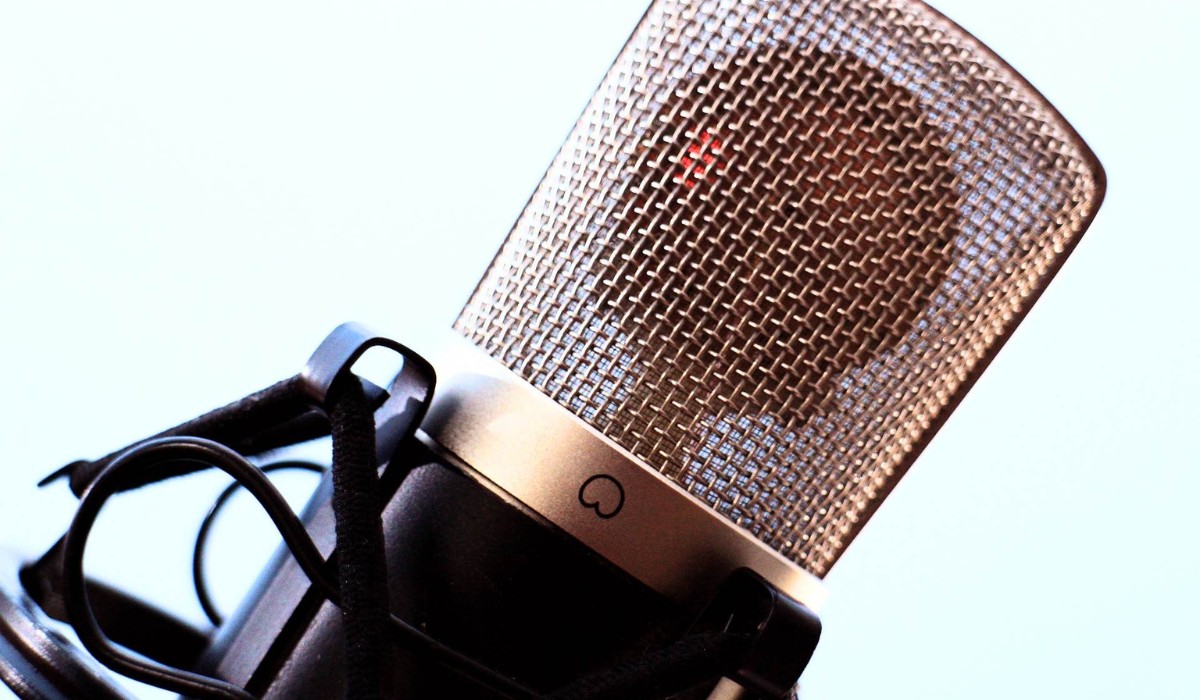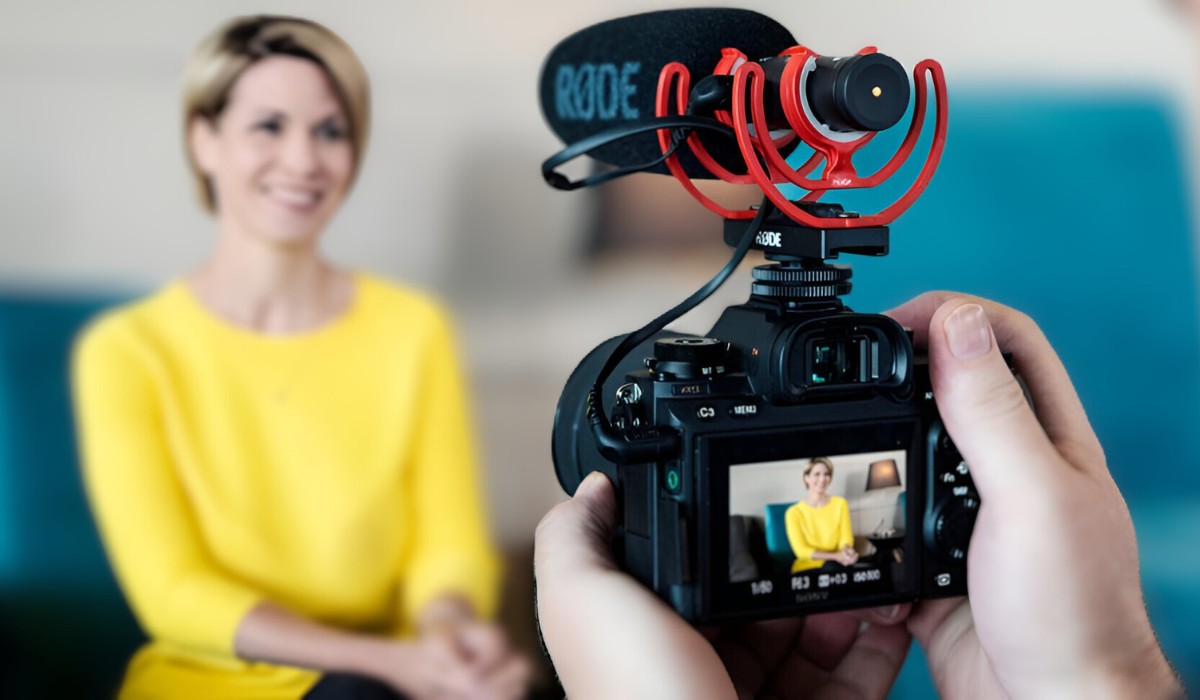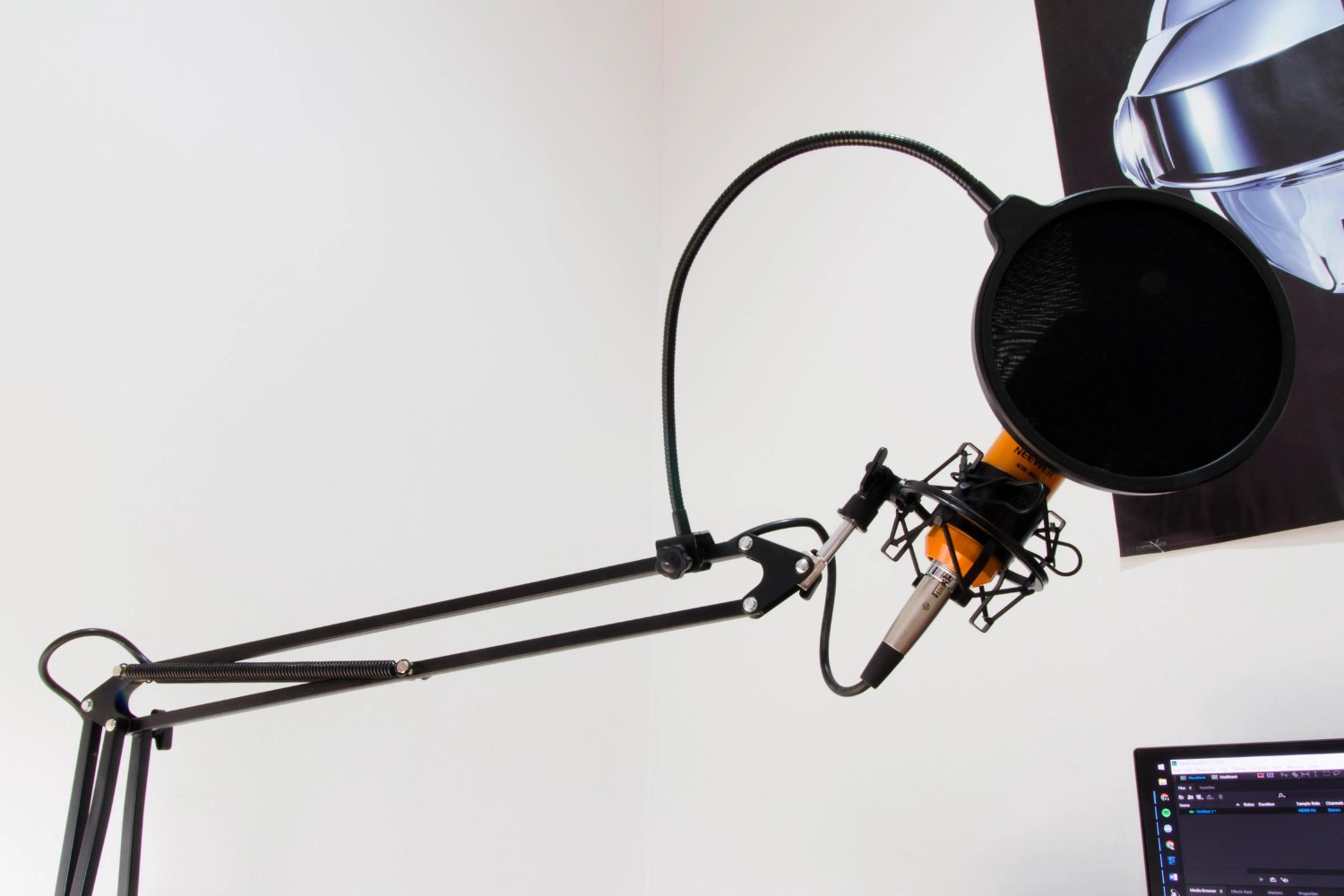ASMR microphone models sell like pancakes these days, with the rise of video streaming and vlogging on the internet. However, not everyone has the knowledge they need to choose an ASMR microphone that suits them best.
There are many types of ASMR videos, and it is important to know which mics should be used for each one. Later on in the article, this is explored; but before anything else, one should first know what ASMR is in the first place. Read on to find out.
Inside This Article
- ASMR Overview
- 15 Best ASMR Microphone Models
- Blue Yeti
- Blue Yeti Nano
- Blue Yeti Pro
- Rode NT-USB Mini
- Movo VXR10-PRO
- Blue Microphones
- Sennheiser MK 4 Cardioid Condenser Microphone
- 3Dio FS Pro II (FSP2-2B-003)
- Audio-Technic a AT875R Line
- Shure MV-88
- Rode M5-MP
- Sound Professionals – Mini Binaural Microphone
- Shure SM7B
- PoP Voice Professional
- Rode NT1-A Anniversary Vocal Cardioid Condenser Microphone Package
- What Is Binaural Recording?
- Why Do You Need an ASMR Microphone?
- Conclusion
ASMR Overview
What Is ASMR?


Taking over the internet is ASMR, which stands for “autonomous sensory meridian response.” It is used by many people for rest and relaxation. However, while it can be in the form of massages and meditation, this genre of content is not limited by these.
ASMR triggers a tingling sensation that travels from your scalp to the back of your spine. Sometimes, this is experienced around your neck area too. These triggers come in the form of sounds and actions, though it is more likely the former. ASMR can come in the form of videos — gaining popularity from YouTube. With the community beginning in 2010, there are now thousands of ASMR content creators (or “ASMRtists”) around the world. Their videos include gentle whispering, tapping on day-to-day objects, and even role-playing as your hairstylist.
The genre has grown from its conception but its goal remains the same: leave its listeners relaxed and maybe even induce them to sleep. Getting the “tingles” leads to these states, which is why content creators continue to innovate tingle-inducing videos. While there is not a lot of research yet on ASMR (as sleep is still mostly unexplored), millions of people watch these videos every day. ASMR videos give its watchers a safe space to just be, a quiet few minutes, and personal attention that makes them feel seen.
These days, ASMR is not as unknown as it once was. The genre of ASMR videos and content caught on fast. Now, everyone wants to dabble in becoming an ASMRtist. The question is, how?
What special equipment do you need?
This is where ASMR microphone models come in.
What Is an ASMR Microphone?


ASMR microphone models are what enhance the livable ASMR experience. These are what elevate a video from your usual set-up to a high-quality ASMR experience.
There are many different ASMR microphone models to choose from. Each has its fair share of pros and cons. Some of these ASMR microphone models duplicate the areas around your ear. By using these microphones, you feel that someone is really whispering in your ear.
There are microphones that also catch how far or near a sound is coming from. Using these ASMR microphone models immerse you in the video further.
Because of how popular the ASMR genre is, there are now many microphones made for these videos. ASMR microphone models are not an uncommon find anymore. Its accessibility makes it even easier for people to join in the ASMR experience.
Why Do People Watch ASMR Videos?
The experience of ASMR is not a new one. While a term for it was only coined in the last decade, the tingly sensations of relaxation have persisted for far longer. Imagine the relaxed state you get into when you get a haircut or massage. The personal attention is what makes it relaxing, as well as the sounds, and maybe even the locations. The internet simply amplified the ASMR experience for so many people. On YouTube, there are millions of ASMR videos to sort through every day. The field of study went from having close to no data to work with to having too much to look into.
It is no surprise that something thought of as mundane or boring found its place on the internet. The internet, YouTube specifically, is an effective way to spread a message and gain an audience. ASMR went from being a little secret to a click-bait phenomenon. People watch ASMR videos for relaxation. More than this, some watch ASMR get a hold of their anxiety, depression, and even panic attacks. While this is not a medical field in any way, there are ASMR videos that can help you through difficult days. There are ASMR videos for breathing exercises, for sleep-inducing tapping, and for other sensations.
Later in the article, there will be examples of ASMR genres you can use your best ASMR microphone models on. There will even be examples of household names successfully using ASMR microphone models. Some will even disclose their love for ASMR.
15 Best ASMR Microphone Models
The Blue Yeti is an ASMRtist’s standard ASMR microphone of choice. With a wide range of products, a classic Blue Yeti provides the clearest and most YouTube-friendly audio recordings. This mic can be used for more than just ASMR, which is a testament to the utility of the Blue Yeti.
Blue Yeti microphones can pick up four different patterns. Without getting too technical, this assures you that your ASMR videos will pick up sounds from anywhere. This would usually need you to have a multi-microphone set-up, but the Blue Yeti does the job for you.
Think of this as a 4-in-1 microphone, making your videos diverse, flexible, and easy to innovate. The four patterns the Blue Yeti picks up are cardioid, bidirectional, Omni, and stereo pickup. Its frequency range is 20 Hz – 20,000 Hz, and you can connect it simply through a USB.
Not everyone is willing to take a big leap when beginning their ASMR content. This is where the Blue Yeti Nano comes in.
Costing less than the Blue Yeti but providing almost the same quality, the Yeti Nano is also a perfect ASMR microphone choice. This is all fun and no games specifically because of its plug ‘n play features. If you want to make a quick ASMR video on the go, or also want to dabble in hassle-free podcasting, the Nano is your best choice.
The Yeti Nano also has 24-bit sound quality and no headphone audio delays. This no-latency feature includes adjustments in volume too. Unlike the Blue Yeti, the Nano picks up two patterns: cardioid and omni.
Smaller and packs a punch, the Yeti Nano is a good choice for beginner ASMRtists that are looking to make classic ASMR videos. This can even be perfect for anyone who wants to know how to start a podcast.
Last of the Yeti offerings is the Yeti Pro, which is the foil to the Yeti Nano. This ASMR microphone is for people who mean business in the genre of ASMR.
Like the Blue Yeti, Yeti Pro can detect four different sound patterns. These are cardioid, omnidirectional, stereo, and bidirectional sound settings. This ASMR microphone also boasts three custom condenser capsules, which makes sure you catch even the highest of frequencies.
The Yeti Pro has both digital and analog (XLR) connectors, making it flexible to use at any given moment. It is also design-patented, so you know there is nothing like the Yeti PRO other than itself.
The first non-Blue Yeti entry on this list is the Rode NT-USB Mini. This USB microphone is also a smart choice when looking for an ASMR microphone.
The Rode NT-USB Mini is a plug ‘n’ play type of ASMR microphone, too. Like the Yeti Nano, this microphone is another great choice for beginner ASMRtists. The ease does not come at a price, too, as this has zero-latency headphones as well.
Record studio-quality audio and send it straight to your PC or tablet with the Rode Mini. For ASMRtists, positioning is important too, so the Mini’s magnetic base features will also come in handy.
Those who are looking to make ASMR videos straight from their iPhones should get the Movo VZR10-PRO. Compatible with the iPhone 5 onwards (including iPads and iPods), this provides professional-grade recordings without needing professional-grade equipment.
Unlike the ASMR microphone models above, the Movo VXR10-PRO picks up only unidirectional sound patterns. However, this will not be much of a problem for people wanting to make simple and beginner ASMR videos.
There are ASMR videos that are location-based such as quiet vlogs and vacation videos. Using the Movo will be a big help for those looking to make this type of outdoor content too.
If you do want to use this on your camera, you can. This comes with a TRS output cable for DSLR cameras and other camcorders as well as another output cable for smartphones and tablets.
Blue Microphones, not to be confused with the Blue Yeti, is another smart choice for an ASMR microphone. Capturing crisp and clear sounds, the Spark Condenser Microphone is a flexible pick for ASMRtists.
Not unknown to anyone working in sound, Blue Microphones have made a name for themselves in high-quality productions. Able to capture even the smallest (and highest) of sounds, this Spark Condenser also has a high-pass filter that reduces unnecessary noises.
Like the Yeti PRO, this also has XLR connection. This feature makes it easy to edit in post-production. Lastly, this also has a -20dB pad that works well in keeping your recordings (or live streams) free of distortion.
Go high or go low, the Blue microphone will be here with you. As ASMR microphone models come and go, you want one that provides the most possibilities. You may need to make high-frequency sounds, for example, for April Fools’ comes along.
Another condenser microphone on this list of ASMR microphone models is the Sennheiser MK4. Used by ASMR legend Maria Gentle Whispers, this has a large diaphragm capsule that renders fine sound resolution.
This pick is optimized for high-quality recording and highlights even the smallest of details in your ASMR videos. The MK4 is best used for sound assortment-type videos, specifically those with small sounds like tapping and (gentle) whispering.
Its specific 1” condenser capsule also minimizes the loud recordings of unnecessary noise, like those made by your equipment as you are setting up.
A strong case can be made for 3Dio without even having to say much about it. This ASMR microphone is perfect for the genre as it is shaped exactly like human ears.
A design like this gives away the beauty of this microphone: it is the closest you can get to physically being around a person’s ears. This ASMR microphone has DPA 4060 Core capsules inside the 3Dio’s ear canals.
Use this for experimental or role-playing types of ASMR. While this may not be your best pick for outdoor recordings, this is professional-grade ASMR equipment. As such, this has two XLR outputs for each ear of the mic.
This comes with its own mic stand, too. Buy the 3Dio and get directly into the meat of ASMR content creation.
Those using digital cameras for their ASMR productions may want to consider the Audio-Technica AT875R Line. Most of these ASMR microphones are for ground set-ups, but the Technica can simply perch on top of your camera.
While its size is compact, the Audio-Technica does not skimp on quality. This ASMR microphone can pick up sounds from different distances, without sacrificing its clarity. Get the best of both worlds with the Audio Technica because while this is the case, this mic also rejects self-made sounds.
What are these self-made sounds? These are the noises your mic makes by bumping into sides and rear ends. Any handling noises are at their lowest with this ASMR microphone, making post-production easier for everyone.
Record with clear, smooth, and natural sounds using the Audio-Technica ASMR microphone.
Shure MV-88
On-location ASMR shoots are becoming more and more common. Many want an escape to nature these days, and ASMRtists can do that by recording just in their backyards.
In doing this, you may want to consider using the Shure MV-88. This ASMR microphone is compatible with all iOS devices (provided they have lightning connectors) and is easy to carry around. Like the previous ASMR microphone model, being compact and easy does not mean less quality. Shure microphones such as the MV-88 are built to last and will not fall apart due to natural sounds like wind breezes.
Unlike the other ASMR microphone models on this list, the Shure MV-88 also comes with two free apps. Get the ShurePlus MOTIV Audio & ShurePlus MOTIV Video applications and make setting up easy for you. If this was not enough to encourage your content-creating career, the Shure MV-88 also comes with a zip-up bag. Keep your already heavy-duty microphone away from potential threats.
Rode M5-MP
Going back to Rode microphones, the M5-MP is a high-end and more professional choice compared with the Rode Mini. This microphone has a ½ inch cardioid condenser that helps you drown out unnecessary sounds and noises while recording.
That’s only the beginning, too.
Using proprietary technology, the Rode M5-MP is a cut above the rest when it comes to ASMR microphone models. Costing just enough, this ASMR microphone can detect unidirectional sounds and comes with windshields and stand mouths.
As a bonus, the Rode M5-MP also has not more than 1dB sensitivity when it comes to working with other microphones. This is best when you are using a varied set-up for ASMR videos.
Again, not all ASMR content creators are willing to go very big so early. Some of the ASMR microphone models on this list are pricey, but not all of them have to be.
Enter Sound Professionals’ Mini Binaural Microphones, which you can get on Amazon today. These have removable lapel chips and can respond to frequencies between 20 Hz to 20,000 Hz. Notably, this is the same range as the classic Blue Yeti, one of the classic ASMR microphones.
Binaural recording, which will be discussed later in this article, is important to many if not all ASMRtists. This makes their content immersive and tingle-worthy because it feels like they are right there with you. Binaural microphones are essentially what people imagine ASMR microphone models to be.
With the Mini Binaural Microphones, you get high production value for a relatively low price. Get a feel of all the different directions when you use this ASMR microphone. Recording-ready, this also comes with a long cable for each mic capsule.
Shure SM7B
Coming back on this list of ASMR microphone models is Shure with its SM7B. Promising a wide-range frequency response, this microphone also features bass roll-off and a mid-range emphasis that produces high-quality audio.
A great choice for ASMR content creators, this can eliminate noise transmissions from your recording equipment. Using internal “air suspension,” the Shure SM7B shure-ly knows what’s best for your ASMR recordings. With this feature, the SM7B also rejects sounds made by your monitors.
The SM7B also specifically caters to close vocals. ASMR content is popular for its in-ear whispering and sound assortments, so this is a match made in audio heaven.
Mount this on your desks or recording set-ups as it comes with its own durable stand already.
Like the Mini Binaural Microphones, the PoP Voice Professional is a cost-effective choice that you can use with your phones.
These go beyond Apple and Android applications; use the Pop Voice Professional with your Blackberry and other Windows smart devices!
You can also use this on your laptop or PCs. There are a variety of ways to make ASMR videos, and the PoP Voice Professional has you covered on all of these fronts. With a long audio jack, you can bring these with you on the go too.
As for its performance, the Pop Voice Professional boasts an omnidirectional mic. This means it can pick sounds from all possible directions. A convenient and smart choice, the PoP Professional Microphone is perfect for beginning YouTube creators. It is also an effective ASMR microphone to build your ASMR videos on.
Capping off this list (with a bang) is the Rode NT1-A. This cardioid condenser microphone boasts various recording styles rooted in quality, warmth, and clarity.
With the ability to go head-to-head with professional-grade microphones, the Rode NT1-A is one of the world’s most quiet studio microphones. This in itself makes it a strong contender as the best ASMR microphone on this list. Going into the specifics, this microphone has a self-noise level of only 5dBA.
Like other ASMR microphone models on this list, the Rode NT1-A is for people who want to put all their eggs in their ASMR basket. Buying this includes a mount, a 20-feet long microphone cable, a dust cover, pop filter, and more. Its capsule is 1 inch long and makes it easy for mounting.
What Is Binaural Recording?


Often mentioned on the list above is “binaural recording,” which is an important aspect of many ASMR microphone models. However, no matter how well-versed you are in ASMR, binaural recording may still be a bit confusing.
The word “binaural” refers to having two ears. Using these ears without (or with minimal) issue refers to binaural hearing. When someone uses ASMR microphone models, the goal is to recreate the binaural experience, even without you being physically there.
Should an ASMRtist use binaural recording in their content, you can expect the closest experience you can get to a live whisper session. When you hear things binaurally, you know which direction the sounds are coming from. If someone is whispering at the bottom right side of their microphone, you will experience hearing them at the bottom right side of your ear.
Thus, using ASMR microphone models with binaural recording is your best shot at producing the highest quality ASMR content. This is given, of course, that you are wearing your headphones or earphones on. The ASMR experience given by the best ASMR microphone models is moot if you do not have these on.
In a nutshell, binaural recording is when the final product mimics the changing frequency and direction of sounds. Those who listen to binaural recordings will feel sounds coming from all directions, making its way to different sections of their ears.
Why Do You Need an ASMR Microphone?
There are many ASMR genres to choose from. While these will vary in content, length, and ASMRtist, one thing remains: a good ASMR microphone is what these will always need.
These are the genres that may benefit from using an ASMR-friendly microphone.
Mukbang
First off are mukbangs. This is a genre of eating videos that hail from South Korea. In a mukbang, content creators will eat food (often in large amounts) and record themselves while doing it. Simple as this concept may be, mukbangs are a very popular genre in ASMR. Almost 10 million people subscribe to SAS-ASMR, a popular mukbang channel on YouTube.
While SAS-ASMR’s ASMR microphone set-up is undisclosed, listening to her videos give enough proof that she uses a high-quality ASMR microphone. There are no background noises, and the sounds of the food and her chewing are crisp (and soggy, depending on how you hear it).
A high-quality ASMR microphone can help mukbang creators drown out possible background noises in post-editing. It captures sounds in a clear way, drawing fine lines between mukbang sounds and non-essential noise.
Roleplay
Another genre that you may want to use your ASMR microphone on is ASMR roleplays. While this often gets the most backlash for its sexual undertones, the truth of the matter is most ASMR roleplays are harmless and actually provide the most tingles.
Falling under this genre are spa roleplays, hair brushing roleplays, and other beauty-related ASMR content. However, there are many other uses for this genre, including character-related roleplays.
Gibi-ASMR, one of the world’s most popular ASMRtists, is known for her anime-themed ASMR. She has even recreated the entire Bee movie using ASMR as a celebration for reaching 3 million subscribers.
The video above showcases ASMR Requests, one of the first mainstream ASMRtists on YouTube. This is her most popular video, garnering over 5.6M views. Here, she plays an aesthetician tending to your skin and giving you personal attention. The ASMR microphone most roleplayers use is the 3Dio. This is what ASMR requests are using in the video above.
Sound Assortments


ASMR microphone models, at the end of the day, aim to present sounds in the cleanest and crisp of ways. More than that, they should be able to recreate the multidirectional feature of sounds, which is what binaural recording is for.
Sound assortment is a genre of ASMR that gets to the meat of the relaxation genre. This involves finger flutters, tapping objects, shaking liquids, and many more. ASMRtists can get as creative as they want when it comes to sound assortment ASMR. Some can even use sponges, while others just opt for common bodily sounds like whispers and snapping.
In this genre of ASMR, the most often used classic ASMR microphone models are best. The Blue Yeti is by far one of the most popular choices on this list and for already-popular ASMRtists.
Experimental ASMR (Lo-Fi)


As you can expect, the internet is not one to settle for what is already popular. The ASMR genres above are only the tip of the iceberg. There are many other experimental ASMR genres such as animation, magic, and lo-fi ASMR. In Lo-fi ASMR, the ASMR microphone matters the most, as long as it is providing the lowest quality experience. While background sounds are still edited out for relaxation purposes, the soft noises and distortions are what lo-fi ASMR is all about.
The ASMR microphone models above are not needed to make lo-fi ASMR. However, an ASMRtist cannot survive on lo-fi ASMR alone. This is just another genre popular channels will do when they want to. The bread and butter of ASMR lie in the sound assortments and immersive sound experiences.
Still, lo-fi ASMR is a fun genre to dabble in. This goes especially for people who start out with quite a low budget for their videos. Using these also goes to show how diverse the term “ASMR microphone models” really is.
Conclusion
There are many ASMR microphone models for you to choose from. These will range from high-end to lo-fi models, depending on the aesthetic and sounds you want to capture in your ASMR videos.
As an avenue for relaxation, providing the best experience possible falls under the hands of the ASMRtists. Keeping their ASMR clean, crisp, and high-quality is what garners views and a loving community.
ASMR microphone models are a way for ASMRtists to keep their content fresh and immersive. Getting one of these ASMR microphone models will be a large step towards building your own “tingle” community. In the same spirit, you may want to learn about other microphones for gaming and streaming.




























